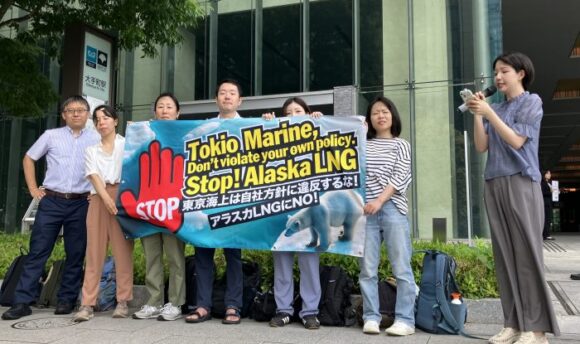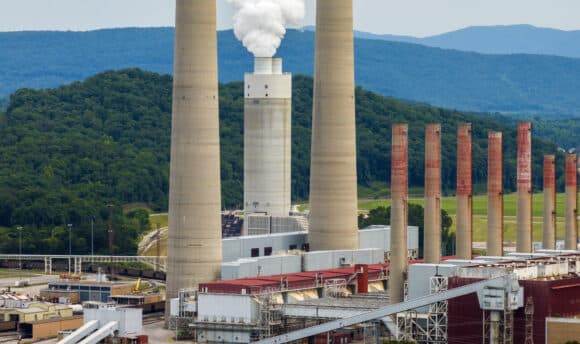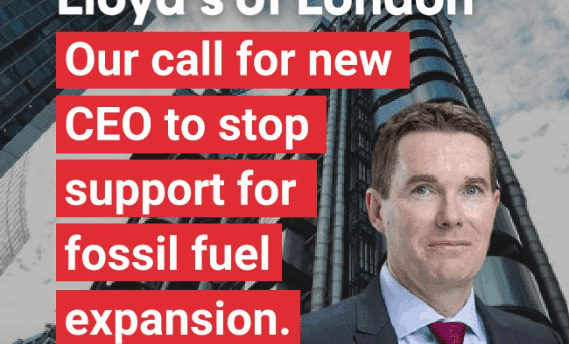Top Korean non-life insurers DB Insurance, Hyundai Marine & Fire Insurance, Hanwha General Insurance, and Hana Insurance, which have provided nearly half of the total US$52 bn coal underwritings by Korean insurance companies — say no more insurance for both construction and operations of coal plants
Following the UN Secretary-General António Guterres’s call on insurance companies to stop underwriting fossil fuels earlier this month at the Insurance Development Forum, major Korean insurers are stopping new insurance coverage for coal power projects. In response to outreach from civic groups, Hyundai Marine & Fire Insurance, Hana Insurance, DB Insurance, and Hanwha General Insurance announced that they will no longer provide any insurance coverage for construction and operation of new coal power projects.
Korea Beyond Coal — a network of civic groups advocating for a complete coal phase-out in Korea by 2030 — together with global coalition Insure Our Future, contacted the country’s top 11 non-life insurance companies, which have underwritten or provided investments of approximately US$52 bn for coal plants, urging them to stop underwriting coal power projects in Korea, including Korea’s last coal power project, Samcheok Blue Power.
In response to the demand, Hyundai Marine & Fire Insurance, Hana Insurance, DB Insurance, and Hanwha General Insurance, whose total coverage makes up almost half of the nation’s coal insurance market, became the first four insurance companies to commit to exiting from underwriting both coal plant construction and operations. DB Insurance, Korea’s second-largest coal insurer, added that it would also gradually retract their existing insurance coverage to operating coal plants. Two others — NH Property & Casualty Insurance and Samsung Fire & Marine Insurance — said they would no longer underwrite construction for new coal plants but did not make any commitment on operation-related insurance.
According to National Assembly Member Soyoung Lee’s office, the total coal underwritings by major insurers are over KRW 59.2 tn (approximately US$ 52.2 bn). Of the list, Samsung Fire & Marine stands as the biggest coal insurer with US$13.2 bn of underwritings for coal plants. As Samsung Fire & Marine has only excluded construction insurance, its coal exposure could increase once the new coal power projects commence its commercial operation. DB Insurance, also one of the first private Korean financial institutions to have committed to coal divestment in 2019, comes in second with US$ 10.56 bn.
| Insurer | Coal Power Plant Insurance Coverage |
| Samsung Fire & Marine | US$ 13.26 bn |
| DB Insurance | US$ 10.56 bn |
| Hyundai Marine & Fire | US$ 9.38 bn |
| KB Insurance | US$ 6.02 bn |
| Meritz Fire & Marine | US$ 4.20 bn |
| Hanwha General Insurance | US$ 3.24 bn |
| NH Property & Casual Insurance | US$ 1.79 bn |
| Heungkuk Fire & Marine Insurance | US$ 1.20 bn |
| Lotte Non-Life Insurance | US$ 1.31 bn |
| Hana Insurance | US$ 1.01 bn |
| MG Non-Life Insurance | US$ 0.2 bn |
Coal plant insurance underwritings by 11 major Korean insurers from National Assembly Member Soyoung Lee’s office
KB Insurance, another financial institution which already pledged to coal divestment, has declined to comment on their plans for future underwritings for coal power projects along with four others — Heungkuk Fire & Marine Insurance, MG Non-life Insurance, Meritz Fire & Marine Insurance, and Lotte Non-Life Insurance.
South Korea currently has seven new coal power units under construction, with three expected to start operations by the end of this year. As new coal power projects are a major obstacle for the country to enhance the national 2030 emissions target and achieve net-zero emissions by 2050, whether these projects can attract insurance will not only play a major role in their viability but also Korea’s ability to meet current climate targets and strengthen them. If the last coal power project in Korea, the 2,100MW Samcheok Blue Power project, is operated for 30 years, the country would phase out coal power by 2054, in contradiction with its 2050 carbon neutrality pledge.
“The four major Korean insures’ -- Hyundai Marine & Fire, DB Insurance, Hana Insurance, and Hanwha General Insurance -- plans to exit coal are a major step in Korea, hinting at the collapse of the coal-insurer “cartel” in Korea. Korean insurers tend to participate in high-risk projects like coal power plants as a consortium to minimize the risk. Having four of them fall out of the coal insurance market means even higher liability for the remaining insurance companies, making coal projects undesirable for everyone involved.
Climate change is a serious financial risk for insurance companies. The cost of the escalating intensity and frequency of natural disasters will end up in these insurers’ hands, one of the reasons why major insurance companies like Allianz, AXA and Swiss Re committed to stop underwriting coal projects. With these apparent risks ahead, we urge the remaining Korean insurers to take a more proactive role in expediting a coal phase-out in Korea by stopping insurance for coal.”
“We welcome Hyundai Marine & Fire, DB Insurance, Hana Insurance, and Hanwha General Insurance’s decision to move away from coal. We especially applaud DB Insurance for taking the lead among Korean insurers and committing to phase out underwriting for existing coal. As the immediate next step, we urge all four companies to publicly disclose the details of their coal exit policies and start putting their commitments into practice. As for Samsung Fire & Marine Insurance, it’s disappointing to learn that its coal exit policy is limited to construction of new coal-fired power plants. This policy is meaningless since construction insurance for new coal is essentially non-existent in Korea. We call on Samsung to stop putting our society and climate at risk and instead, put an end to its coal business.”
“Although Japanese major non-life insurers such as Tokio Marine, MS&AD and SOMPO adopted coal policies to not underwrite insurance or invest in new coal-fired power plants in principle, their policies include a wide range of exceptions that make them inconsistent with the goals of the Paris Agreement. At the very least, Japanese insurers should follow suit of Korean insurers and strengthen their policies to immediately stop underwriting coal to avoid being the global coal insurers of last resort.”



